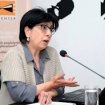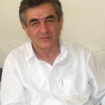The Karabakh Conflict in the Context of Political Processes in Armenia and Azerbaijan - 2018: Page 6 of 11
for the image and resources, I agree here that not everything is as simple as it may seem. As they say in Europe, "it takes two to tango". And the democratic processes started by one of the parties to the conflict do not mean a change in the public outlook, moreover on a global scale, in its favor. There are many other factors that play a role in determining the significance of this or that country. Here is the question: what is more important for the West - the democratic processes in Armenia or the role of oil and gas in Azerbaijan? What will outweigh?
Sergey Markedonov - I am convinced that there is no direct connection between the level of democracy and the resolution of the conflict. Imagine competitive elections, transparency, competitiveness. Does this mean an increase in the capacity to manoeuvre on the external arena? Hardly so. The EU, however it may prioritise the idea of multi-vector policy, is not ready to take up many security issues, and Karabakh presents a scenario of primary importance. The argument about political archaism in Azerbaijan has a restricted scope of action. Who shall it target in Baku? Yes, it will be accepted in Armenia and the Diaspora. Suppose even the US and the EU really believe in their policy of "values" and terminate the quite pragmatic cooperation with Azerbaijan. But this will not terminate its status as a part in negotiations! And how will we substantiate it? Through lectures on the dangers of the dictatorship? I'm not sure that will help.
Arif Yunusov - Well, I definitely disagree with this statement by Sergei Markedonov. Though he addresses several aspects at a time. Actually, democracy is linked to conflict resolution. I mean, there are conflicts everywhere, even in Western Europe, including ethnic ones. However, the problem is that democratic regimes are seeking to address these problems through dialogue, trying, to the extent possible, to avoid forceful alternatives. Where, as non-democratic regimes smoothly relapse into forceful resolution. Therefore, we should eliminate the absence of direct correlation. There does exist a correlation. The level of democracy in the post-Soviet space is another issue. Here, for the time being, we observe rhetoric only and not tangible steps in this direction. In this regard, it is relevant to refer to the previous post by Sergey Markedonov, claiming that a democrat (dissident) who came to power is not always a guarantee of peace and refusal to use brutal force in resolving the conflict. And where do we find these democrats in the western sense of the word? Calling themselves democrats does not mean that they truly are democrats. Furthermore, if we consider a purely theoretical problem, a single case of the democratization process in Armenia is not enough to resolve the conflict. Such a process needs to be launched in Azerbaijan, too. The Karabakh society is obviously far from democratic standards as well, especially when compared to the Western standards. For a quarter-century we have been independent countries outside the former USSR, but we still remain Soviet in essence.







 +37410 563363
+37410 563363
 1/3 Buzand Str, 8 Floor, Yerevan, Armenia
1/3 Buzand Str, 8 Floor, Yerevan, Armenia